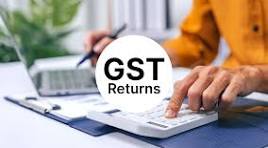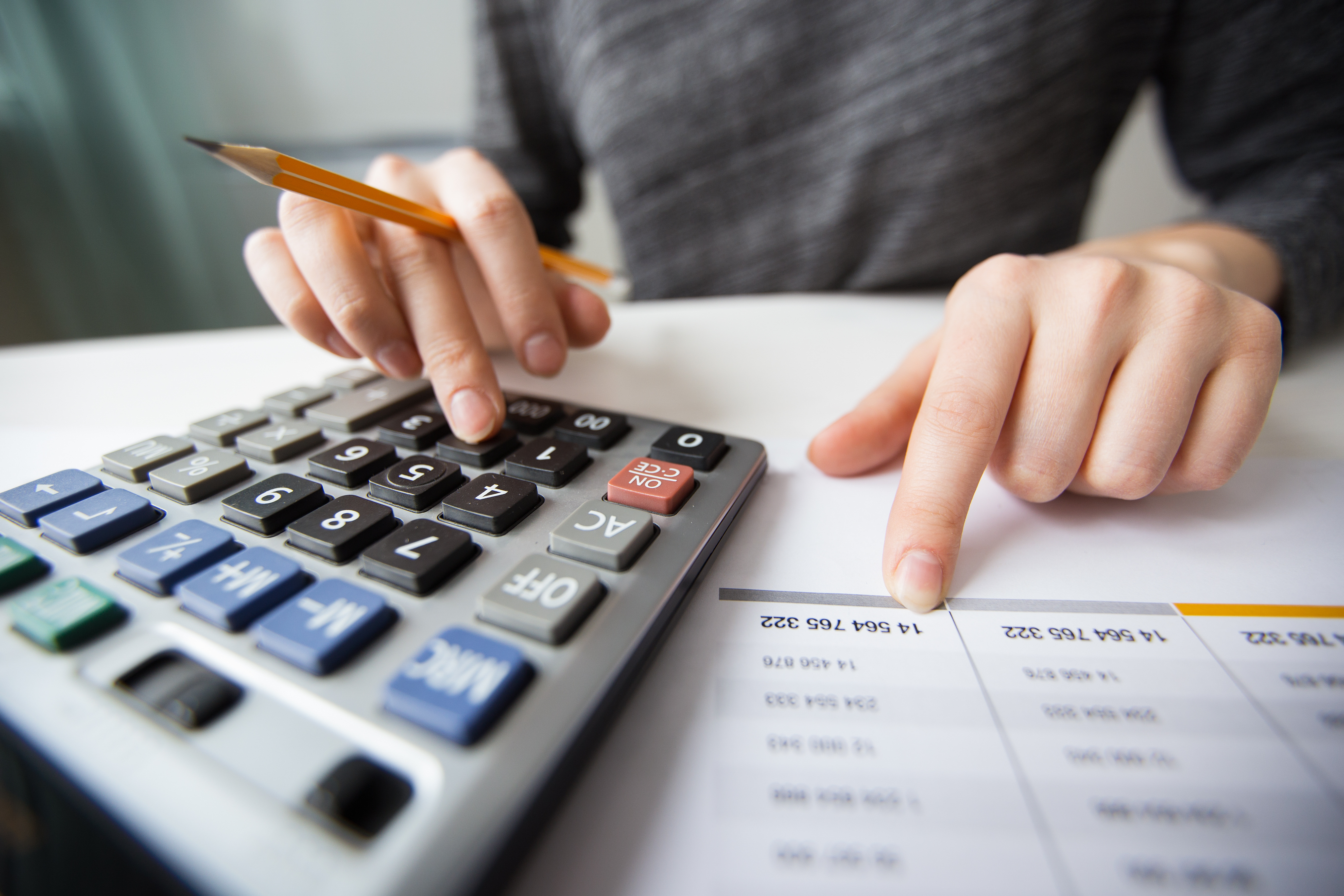GST Return in Auckland: Key Steps Every Business Should Know

Strong 8k brings an ultra-HD IPTV experience to your living room and your pocket.
As a business owner in Auckland, managing your GST (Goods and Services Tax) return is an essential task. Properly handling your GST obligations ensures compliance with New Zealand tax laws and helps maintain your business’s financial health. The process of filing a GST return might seem daunting, but by following a few simple steps, you can avoid mistakes and keep your business running smoothly. This article will walk you through the key steps every business owner in Auckland should know when filing their GST return, from understanding GST requirements to filing your return accurately and on time.
Understanding GST Requirements in Auckland
The first step in managing your GST return is understanding whether or not you need to file one. In New Zealand, most businesses that make taxable supplies of goods or services must register for GST if their annual turnover exceeds $60,000. However, even if your turnover is below this threshold, you may still choose to register for GST voluntarily. Once registered, you’ll be required to file regular GST returns to account for the tax you’ve collected on your sales and the tax you’ve paid on your purchases.
In Auckland, as with the rest of New Zealand, the standard GST rate is 15%. This means that if your business sells goods or services, you need to charge this rate on your taxable supplies. On the flip side, when you purchase goods or services for your business, you can claim back the GST you’ve paid on these expenses.
It’s also important to know the different filing options available. Businesses in New Zealand can file their GST returns either monthly, bi-monthly, or annually. The frequency of your filing depends on your business’s size and preference, but most businesses will file bi-monthly returns. Monthly filing is typically required for businesses with larger turnovers, while annual filing is available to small businesses with simpler tax affairs.
Key Steps to Prepare for Your GST Return
Once you understand the requirements, it’s time to prepare for your GST return. Proper preparation ensures you don’t miss any important details and that your return is filed accurately.
Organizing Your Business Records
Keeping accurate records is critical when filing your GST return. Your records should include all sales, purchases, and expenses for the period you’re reporting on. Having these records organized and easily accessible will save you time when it’s time to file your return and help avoid any mistakes. Be sure to keep invoices, receipts, and statements that show both the GST you’ve charged on sales and the GST you’ve paid on purchases.
One of the most efficient ways to organize your records is by using accounting software. Many businesses in Auckland rely on tools like Xero, QuickBooks, or MYOB, which can track your GST automatically and generate reports for you. This eliminates the need to manually calculate your GST, reducing the risk of errors and ensuring that your records are always up to date.
Understanding Your Taxable Activities
Before you file your GST return, you must review your taxable activities. These are the transactions that are subject to GST, including sales, purchases, and certain other business activities. When reviewing your records, be sure to identify which transactions are taxable and which are exempt. For example, if your business sells food, some items may be exempt from GST, while others are taxable.
It’s important to ensure that you’ve accounted for all taxable transactions during the period, as missing any could result in your business underreporting its GST obligations.
Reviewing GST on Purchases and Expenses Next, it’s essential to review the GST you’ve paid on business-related purchases and expenses. This is known as input tax, and you can claim it back on your GST return. To do this, make sure that your records include all eligible expenses, such as purchases of goods, services, or equipment for your business. If you’ve paid
GST on these purchases, you can claim the GST back, reducing the amount of tax you owe.
As you go through your expenses, be careful not to overlook any GST you’ve paid on items you can claim. For example, if you’ve made a large purchase for your business, such as a computer or office equipment, ensure that the GST on this purchase is included in your claim.
How to File Your GST Return in Auckland
Once you’ve organized your records and reviewed your taxable activities and expenses, you’re ready to file your GST return. In Auckland, as in the rest of New Zealand, the easiest way to file your return is online through Inland Revenue’s (IR) myIR system. Here’s how the filing process works:
Step-by-Step Filing Process
Log into myIR: If you haven’t already, create a myIR account on the Inland Revenue website. This portal allows you to manage your tax affairs, including filing your GST return.
Select Your GST Period: Choose the period for which you’re filing the return. If you’re filing bi-monthly, for example, you’ll select the relevant two-month period.
Enter Sales and Purchases Data: Enter the total amount of GST you’ve collected on sales (output tax) and the GST you’ve paid on purchases (input tax). The myIR system will automatically calculate the difference between the two figures, showing whether you owe GST or are entitled to a refund.
Submit Your Return: Once all the information is entered and double-checked, submit your return. You’ll receive confirmation that your return has been filed.
Filing Deadlines and Penalties for Late Submissions
It’s crucial to be aware of filing deadlines to avoid penalties and interest charges. For most businesses, the deadline to file your GST return is the 28th day of the month following the end of your GST period. For example, if you’re filing a return for the period of March to April, your return will be due by May 28th.
If you fail to file your return on time, you may face late fees and penalties. Inland Revenue charges a penalty for late submissions, which increases the longer you wait to file. Additionally, if you underreport or overstate your GST, you could be subject to further penalties, making it important to double-check your figures before submitting your return.
Common Mistakes to Avoid When Filing Your GST Return
Many businesses in Auckland make common mistakes when filing their GST returns. These errors can lead to incorrect filings, penalties, or missed opportunities for tax refunds. To ensure your GST return is accurate, avoid these common mistakes:
Incorrectly Categorizing Expenses
Misclassifying expenses is a frequent mistake. For example, if you mistakenly categorize a business-related purchase as personal, you might not be able to claim the GST back. Be sure to carefully review each transaction to ensure that it’s correctly categorized as a business expense.
Forgetting to Include GST on Certain Sales or Purchases
Sometimes, businesses overlook including GST on sales or purchases. This could be due to confusion over whether an item is taxable or exempt, or because of a clerical error. Always double-check your sales invoices and purchase receipts to ensure you’ve accounted for the GST properly.
Overlooking GST Refunds
Some businesses may be entitled to a GST refund, especially if they’ve paid more GST on purchases than they’ve collected on sales. If you’ve overpaid, make sure to claim your refund when filing your return. Failing to do so could mean missing out on money you’re owed.
Tips for Efficiently Managing Your GST Returns
Filing your GST return can be a time-consuming process, but there are several ways to make it easier and more efficient. Here are a few tips to streamline the process:
Automating Your GST Calculations
Using accounting software that integrates with myIR can make the filing process much easier. These tools automatically track your sales and expenses, calculate the GST, and generate reports. By automating these calculations, you can save time and reduce the chances of making errors.
Outsourcing GST Returns to a Professional
If you find managing GST returns overwhelming, consider outsourcing the task to a professional accountant or tax agent. They can ensure that your return is filed accurately and on time, and they can also provide advice on how to optimize your tax situation.
Planning Ahead for Future GST Payments
Managing your GST payments in advance can help avoid cash flow issues. Make sure to set aside funds each period for your GST obligations, so you’re not caught off guard when it’s time to file.
Conclusion
Filing your GST return in Auckland doesn’t have to be a complicated process. By understanding your obligations, keeping organized records, and following the necessary steps, you can ensure that your business remains compliant and avoids costly mistakes. If you need help managing your GST return, don’t hesitate to reach out to a professional accountant or tax agent who can guide you through the process. Staying proactive and prepared will help you focus on what matters most—growing your busi
Note: IndiBlogHub features both user-submitted and editorial content. We do not verify third-party contributions. Read our Disclaimer and Privacy Policyfor details.







